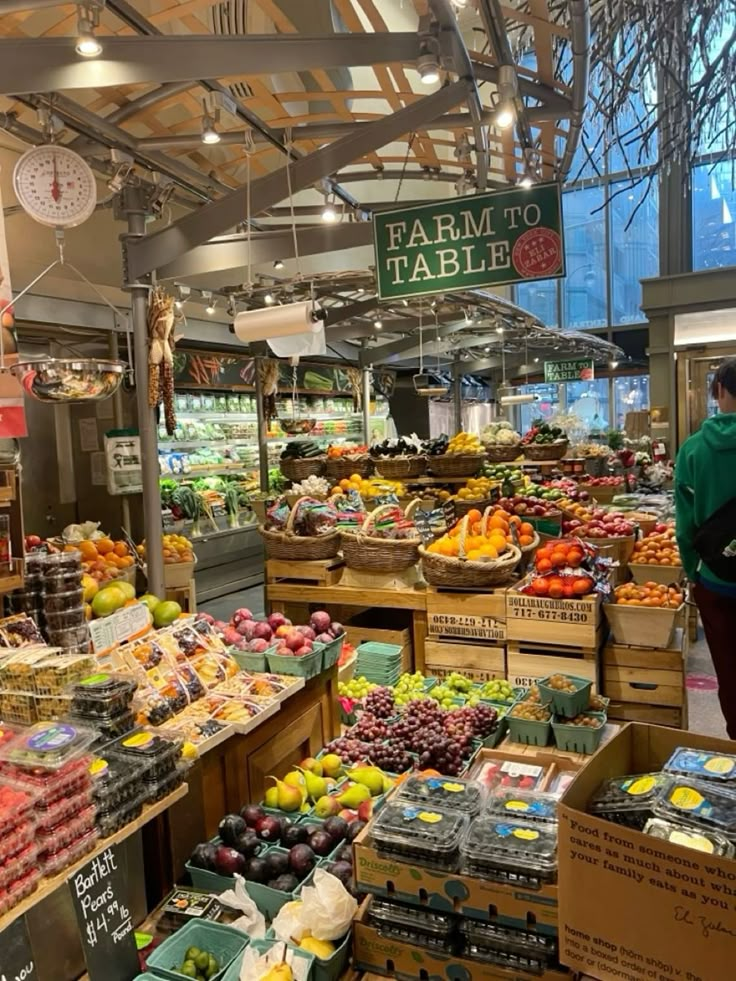Day 6: Greener Days My Earth Week Journal
When we choose local farms over factory shelves, we’re not just investing in fresher produce, we’re investing in our health, hormones, and the benefit of the Earth.
As someone living with PCOS, I’ve learned how deeply my body responds to what I eat. Recently, my eating habits have been nothing close to perfect. I’ve noticed a shift in my cycle and appearance because of it. Highly processed, shelf-stable foods often contain endocrine disruptors, preservatives, and excess sugars that throw off hormonal balance. But when I started paying attention to how my food was sourced and produced, everything began to shift.
Living in NYC does not make it easy to source local farmers’ markets because the city doesn’t exactly scream farm-fresh. Between subway delays, corner bodegas, and grocery stores stacked with imported produce, finding a true farmers market sometimes feels like searching for a needle in a haystack. The fast pace of the city can make it easy to forget that food doesn’t come from shelves; it comes from soil. But after travelling across boroughs, when I do find a space, it brings me a connection to real food and newfound rhythms.
Despite the urban sprawl, NYC does host a network of farmers’ markets that are tucked behind high rises and subway lines. Here are a few whether you are in Manhattan, Brooklyn, Queens or beyond, that can be accessible for you:
- Union Square Greenmarket (Manhattan): Mon/Wed/Fri/Sat, 8 AM–6 PM
- Grand Army Plaza Greenmarket (Brooklyn): Saturdays, 8 AM–4 PM
- Brooklyn Borough Hall Market (Brooklyn): Tuesdays and Saturdays 8 AM-3 PM
- Inwood Greenmarket (Manhattan): Saturdays, 8 AM–3 PM
- Jackson Heights Greenmarket (Queens): Sundays, 8 AM–2 PM
GrowNYC can help you search even further: https://www.grownyc.org/greenmarket/ourmarkets
Compared to supermarkets, farmers’ markets offer several important advantages:
- Freshness & Nutrition: Food in grocery stores can be filled with GMOs, pesticides, and antibiotics that can have negative effects on human health. Most food found at farmers’ markets is produced with sustainable farming and is harvested right before the market, making it more nutrient-dense.
- Fewer Hormone Disruptors: Many local farms use organic or low-spray practices, meaning less exposure to pesticides and synthetic chemicals that can worsen hormonal imbalances.
- Transparency: You can ask how your food was grown, whether animals were pasture-raised, and how soil health is maintained, something you’ll never find on a supermarket label.
- Community & Connection: Large agribusinesses dominate food production, and when you buy directly from farmers, that allows them a better return for their produce, helping to strengthen local economies.
- Eco-Friendly Choices: Without the long-haul shipping, refrigeration, and plastic-heavy packaging, local food systems drastically reduce environmental impact. The long-haul shipping contributes to pollution and extra trash caused by packaging. Industrial agriculture also causes pollution to the air, water, and land due to the agricultural by-products released.
This means that by buying a basket of veggies from a farmers market, you’re not just feeding your body, you’re reducing your carbon footprint by cutting down on emissions and supporting regenerative practices that help heal the planet.
So today, I challenge you to:
- Look up your nearest farmers’ market or Black-owned farm.
- Ask your grocery store where they source their produce.
- Try cooking one meal this week entirely from local ingredients.
- Talk to a farmer, it’s empowering to know who grows your food.
Our cycles are not separate from nature. They reflect the rhythms of the moon, the soil, and the seasons. By honoring that connection, we begin to heal in sync with the planet.
“The biggest thing you can do is understand that every time you’re going to the grocery store, you’re voting with your dollars. Support your farmers’ market. Support local food. Really learn to cook.”
– Alice Waters







